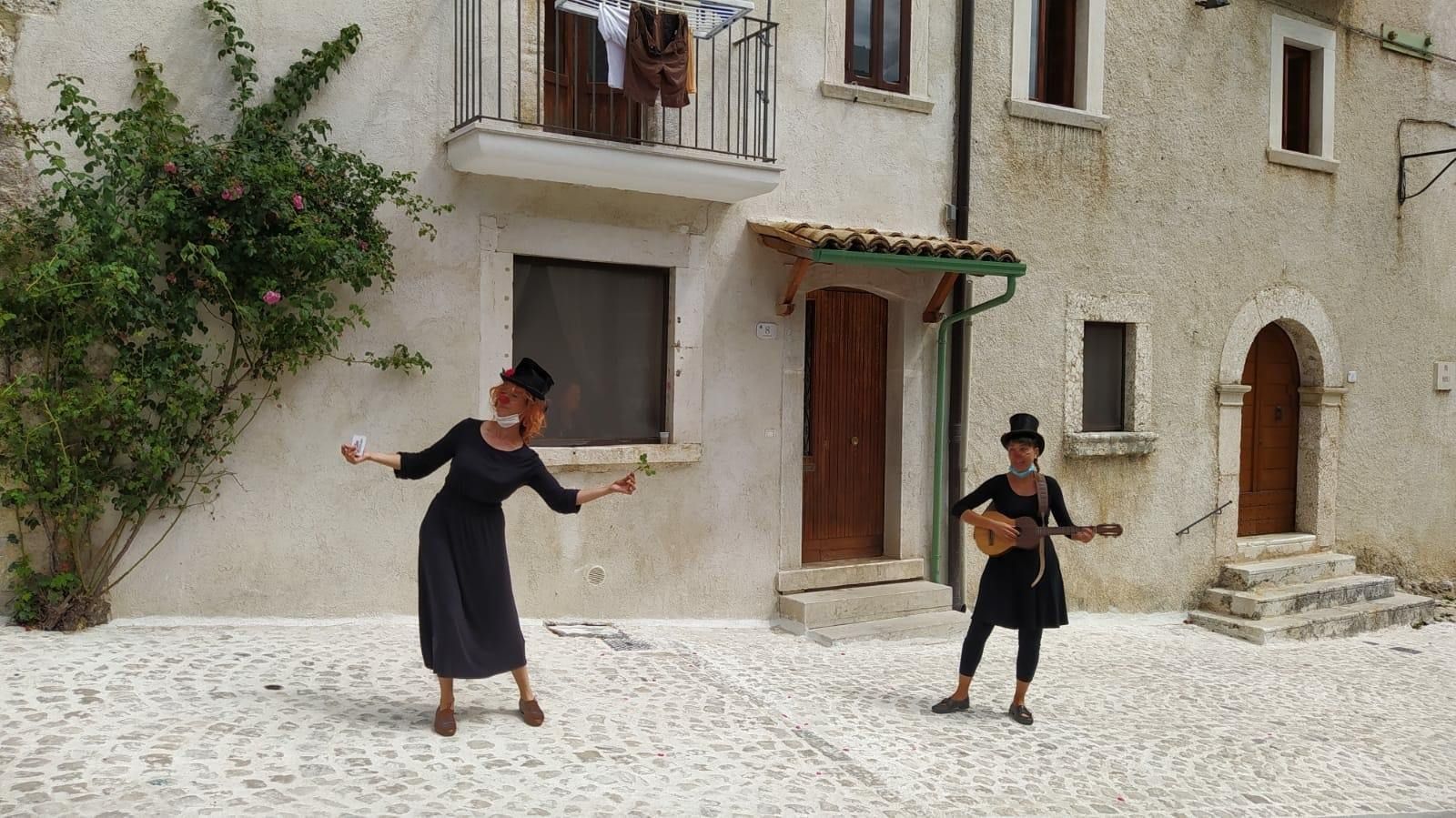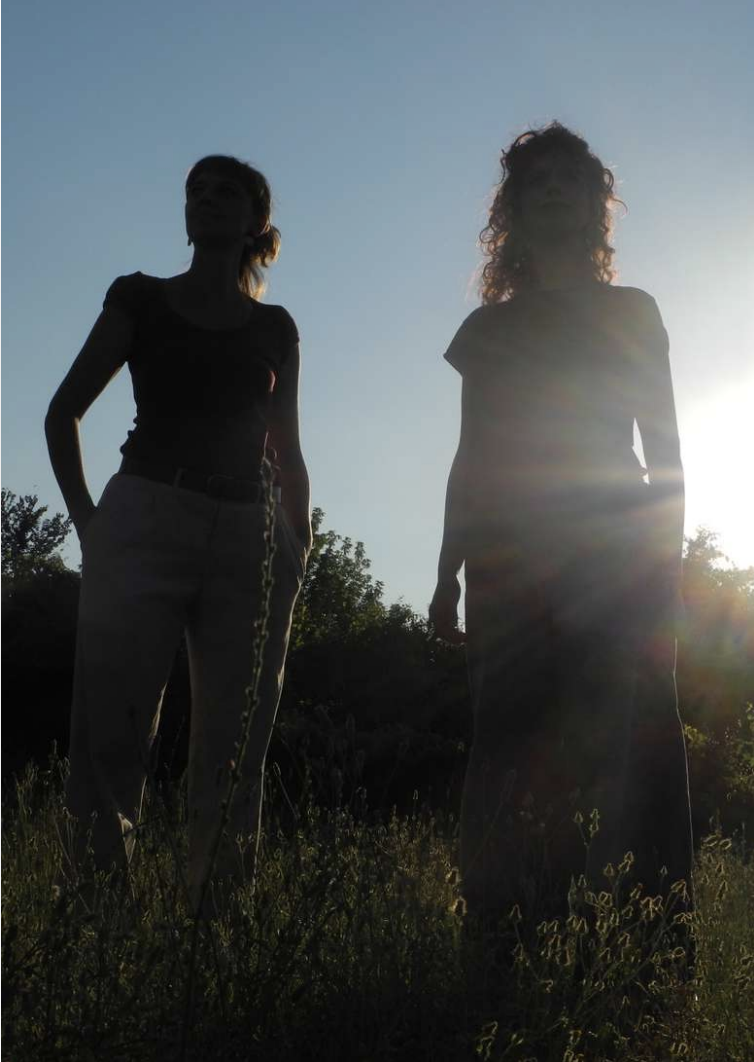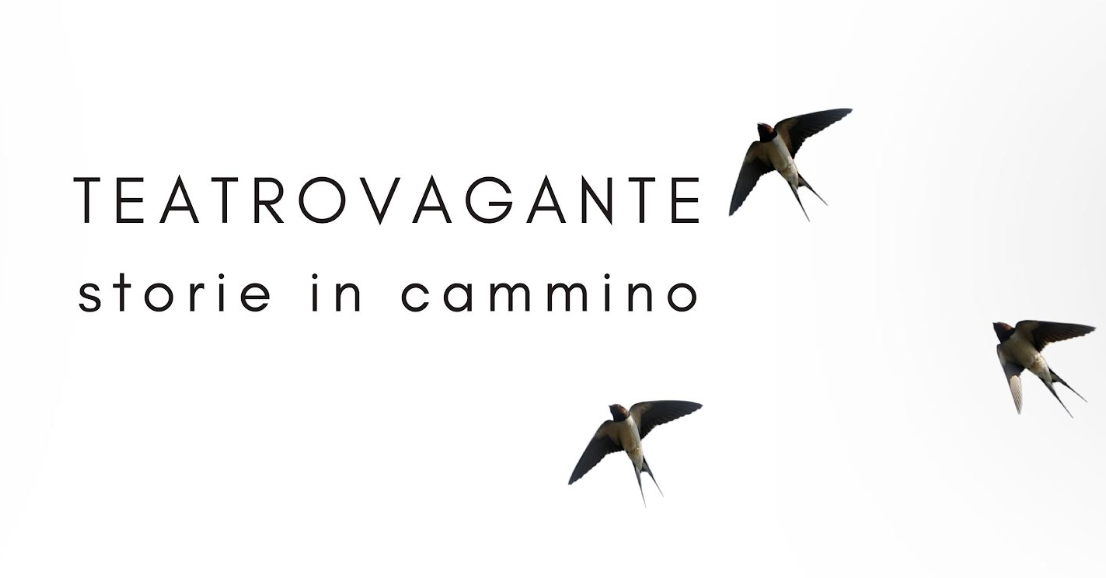

TeatroVagante, by Sara Gagliarducci and Valentina Nibid.
The project seeks to enhance little-known places in the Italian hinterland, especially the central-southern area, trying to return an unprecedented narrative that starts right from its inhabitants and at the same time authentic through the language of art.
The sense of celebration that TeatroVagante triggers in the communities spreads a message that speaks of respect and coexistence, of humanity and landscape, making it take root and reverberate so that everyone, starting with those local inhabitants, can feel an active part of an ecological and ethical process, custodians of the most precious asset: the world that welcomes us. In 2020 the project created an itinerant artistic residency through 9 small towns of Abruzzo. The villages touched were: Civitella Alfedena, Castelli, Fontecchio, Scontrone, Azzinano, Santo Stefano di Sessanio, Campli, San Pietro di Isola del Gran Sasso, Tufillo. In summer of 2021 the project was embraced by the Abruzzo, Lazio and Molise national park which allowed the Teatrovagante to reach Rocchetta al Volturno (Isernia), Alfedena, Lecce in the Marsi. Also in 2021 the University of L’Aquila studies chose it as a project to create an itinerant artistic residence that involved 9 students in the towns of Navelli, Carapelle Calvisio and Castelvecchio Calvisio. Each journey was told with a logbook published, step by step, on the daily web daily virtues: a series of articles of words and images made by the protagonists of this adventure. Moments of the journey were also told by Left magazine and by Teatro e Critica magazine. Finally, the project is told in epistolary form in the number 42 of 2021 of the Teatro e Storia publication.
Operating modes
Street art performances. During the three days of residence, TeatroVagante carries out interventions in the host country at a fixed or itinerant location that communicate with the world that hosts it. By entering into a relationship with the landscape and the history of the places, these interventions are aimed at animating the context and revitalizing it through the artistic language but also at deepening the relationship with the narrative contents of the country by the “travelers”. The main objective is in fact to collect material to carry out the crossing or the performance that closes the residence.
Crossings. At the end of the residency, the community of the host country is involved in a theatrical walk inside the village which is a return of the experience lived together, a collective story that arises from the encounter with the narrative and symbolic contents of the places to open up to a active and participatory public.
Travel diary. TeatroVagante is accompanied by a “swallow”, a guest artist, who has the task of adding her gaze to the experience in order to be able to tell it through a logbook consisting of articles and photographs. The swallow’s point of view is a precious element to convey the complexity of the experience.
Poetic shifts. Moving from one country to another can be thought of as a real performance open to public participation, aimed at creating a link between the various countries involved. Depending on the context or the network of host countries, the most suitable means of transport is chosen: trekking in the company of donkeys, campers, cars, public buses, tractors. The idea that accompanies this practice is that of slow time, the time of nature, the watchful time of the craftsman.
The story of TeatroVagante clearly tells us, and especially in this period, that the theaters are not at a standstill, rather it is the theatrical building that is closed. The theaters, or those who make theater, and those who watch it, at different levels, went in search in this period.
From the introduction by Doriana Legge, Professor of Performing Arts – University of L’Aquila, to La Lettera del TeatroVagante. Published in “Teatro e Storia” s.n. 42 – 2021
Theater is wandering by definition, thus expressing its vocation to be elusive, never replicable, in the here and now of an apparition that will never return. And then we need the theater, we need it to wander between the practices and sensations, between the emotion from one to the other of the actors and spectators, we need it to arrive as an artistic invasion into a community. We have lived in three: Navelli, Carapelle Calvisio, Castelvecchio Calvisio, together with two performer-clowns, two musicians, nine students from different faculties of the University of L’Aquila, a teacher, a video maker, the two of us critics. An Itinerant Artistic Residence means being together with that community, being part of it and stimulating it to move from one place to another. These pages are a reportage of this journey, the way to support him to read the relational dynamics put in place between the TeatroVagante and the communities that have accepted to host us and to share roads and stories. Or diving into theatrical games, moving white sheets, illuminating dark paths, singing sacred songs, in calling to the country to seek contact, hungry for this and yet respectful of others. We called them postcards, because we would like them as a thought of affection that goes far. To someone who can’t see us, can’t hear us. Someone who we would like to be here, with us, because a caravan always has room for those who want to queue up, go up the whole group, get in front of the guide.
Simone Nebbia and Viviana Raciti (from the editorial of La Carovana, 13 August 2021), Teatro e Critica.
[…] TeatroVagante is not something that one witnesses, or that one reaches (as often the theatrical convention, “going to the theater”), but it is something that arrives. This clearly tells us, especially in this period, that the theaters are not stopped, but the theater building is closed. In fact, this is what we should say: theaters, that is, those who make theater, and those who watch it, at different levels, went in search in this period. Out of place: that is, outside the traditional production mechanisms. Outside the theater building. Off the rails – crossed several territories. Or at least the most virtuous have tried to do it, in different ways. The TeatroVagante runs through the territories of “doing” and opens up to the territory, outside the walls. What better opportunity than the one imposed by the pandemic? The TeatroVagante by Sara and Valentina is a theater without a shell, whose generating gesture is to occupy the space to find the center of things. It is not always easy to be out of place, to look for that relationship which in the theater, in theatrical buildings, is as imposed by the convention, and from which one cannot escape. […]
In some letters Valentina and Sara wrote me this: Sara and I went away, home, to change. We were one in the room and the other in the bathroom. From afar we hear a sound, we stop, we look for each other in the corridor. We quickly put on a pair of pants and open the door: they were all out there for us with the accordion and tambourines. The country had brought us the serenade. So, without shoes, we went out and danced. […] The feeling is as if they had been following and studying us all the time and now they were there to greet us showing affection and desire to share. It is no coincidence that this country has reached the end of its journey to remind us that we must never take anything for granted, that it is enough to stop and wait for the places to emerge. So, full of amazement and doubts that this last meeting gave us, we cannot help but dream of soon setting sail again. The practice of the TeatroVagante then becomes a possibility, for those who do the theater, to regenerate. Any space can be a theater space as long as relationships are created. The slogan “out of place theaters” reveals to us the real yearning, the real essence, that is to look for the place in which to create relationships, with a type of non-ordinary action, an “out of place” action, something unseemly, out of conventions. Or even outside the restrictions, and therefore in times of a pandemic how important can it be?
Extract from the lecture by Doriana Legge, professor of entertainment disciplines – L’Aquila university, “We need to go to the streets”: reflections on misplaced theaters.
March 29, 2021 – Study day Looks on the landscape, organized by the Department of Human Sciences of the University of L’Aquila and the Superintendence of Archeology, Fine Arts and Landscape for the City of L’Aquila and the Municipalities of the Crater within the framework of the project “A lesson in landscape : multi-voice conversations on the cultural landscape “.
A suitcase with stage clothes, a colored hat as a good luck charm, a great desire to rekindle the smiles that the months of restrictions have extinguished and to return to acting in front of an audience, albeit a small one. Not on the stages of theaters, whose curtains were lowered a year ago for Covid 19, but for the alleys of the Abruzzo hinterland towns, on an itinerant journey of hope that began after the first lockdown and which will continue as soon as travel is allowed . […] New places and adventures await them after having launched an appeal for hospitality to the municipal administrations for a sort of “take-away” theater that arrives at the house and which revitalizes the small communities affected not only by the pandemic, but also by seismic and calamitous events. An idea born from the strong need to react to the waiting conditions experienced by show business workers for a year, to go beyond the physical confines of a theater and to start living open public spaces again as meeting places and participation.
Excerpt from the article by Adele di Feliciantonio, Il Centro – March 9, 2021
Abruzzo tells its story […] Abruzzo is a space that becomes more and more narrative space. In fact, more and more individual and collective initiatives are born in the area with the aim of telling it. […] another suggestive project to say the least, born just last summer among the villages of the region, is the one conceived by the theatrovagante duo. […] During the days they collected stories from the people of the area that were transformed into the performance that would take place on Sunday. […] “By crossing the most significant streets we gave the inhabitants a new history of the territory they themselves inhabited. a story that some of them did not even know and in which they could thus structure a new sense of belonging. “
Excerpt from the article by Ilaria Paluzzi, Left – February 2021
saragagliarducci@gmail.com
+39 3477153465
valentina.nibid@gmail.com
+39 3497537398
saragagliarducci.com © Tutti i diritti riservati | Sara Gagliarducci | Privacy Policy | Cookie Policy | Contatti


